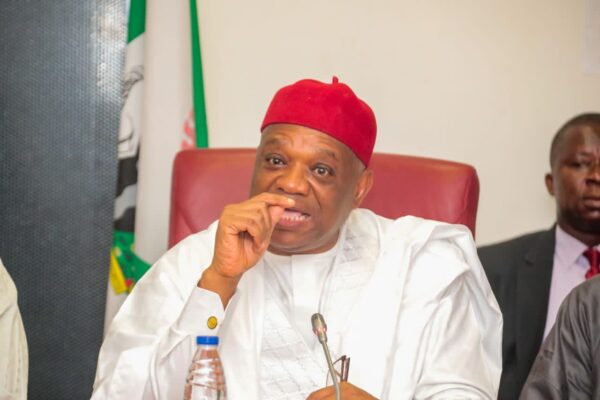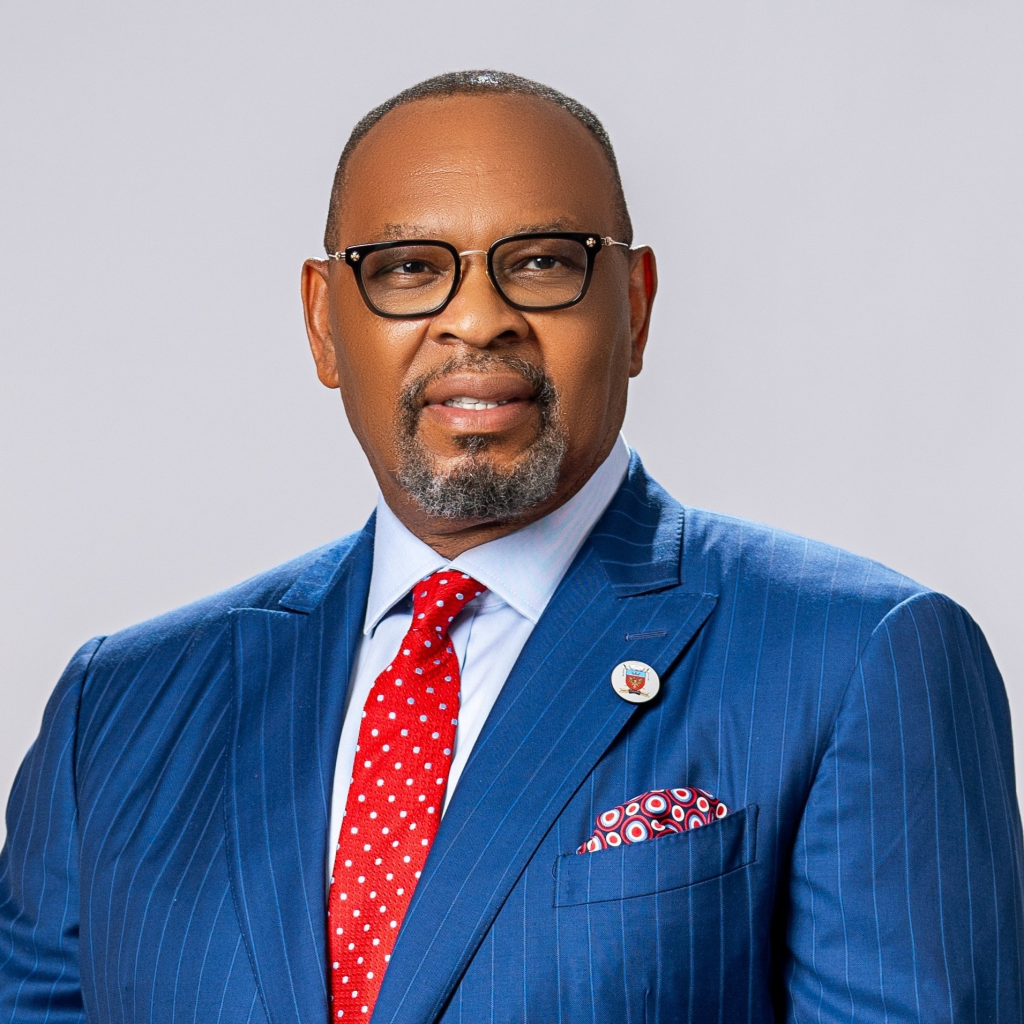The Ebonyi State governor is committed to institutional autonomy, writes UKO ETUK
The room went silent. A powerful governor at the meeting of Nigeria Governors’ Forum (NGF) and the Conference of Speakers of State Legislatures had just declared that the Speakers owed their political lives — their tickets, their careers, even their survival to the Governors. “We own everything,” he said, daring anyone to challenge him.
Francis Ogbonna Erishi Nwifuru, then Speaker of the Ebonyi State House of Assembly, stood up. His voice cut through the air: “You are not God.”
Now, I must make a disclosure here. I was not in the room when this exchange happened, and for years it floated around as one of those whispered stories in the corridors of power — especially whenever constitutional amendments on the legislative and judiciary autonomy came up, with tales of powerful governors trying to scuttle the process. I had even heard a version of it at the Conference of Speakers’ Secretariat during a visit for discussions on separation of powers, though at the time the characters remained unnamed.
It was only in this interview with Nwifuru that the moment took flesh — with him not only confirming it but also owning it.
In Nigeria, where state assemblies are often mocked as rubber stamps for governors, such defiance borders on sacrilege. Yet it marked a turning point — one that would ripple through the battle for legislative autonomy between the NGF and the Conference of Speakers.
“What we were discussing was autonomy for the legislature and judiciary,” Nwifuru recalled. “Once you’re not financially independent, you’re compromised. And I could not accept that.”
To his surprise, the Governor of Ebonyi State at the time — David Umahi — agreed, standing with him in principle. Umahi, who was absent at the fateful meeting, later heard of his Speaker’s stand against the threat and endorsed it, assenting to the two autonomy bills for constitutional amendment for state legislature and judiciary — not out of charity, but to prove that Nwifuru’s fiery words were backed by substance. “That day, something shifted,” Nwifuru said. “We showed that a legislature could stand on its own two feet.”
Even now, as governor, Nwifuru continues to describe Umahi as a builder, mentor, and the man who gave practical life to that vision by assenting to the two autonomy bills. It is a rare continuity in Nigeria’s turbulent subnational politics — a moment where confrontation birthed collaboration.
Today, Nwifuru governs Ebonyi State as its chief executive. Yet his philosophy of autonomy still drives him. “I don’t interfere in the House,” he told me firmly. “I don’t pay their salaries, I don’t buy anything for them. They run their budget. My job is to do mine, and theirs is to do theirs.”
That insistence on boundaries is rare in Nigerian politics, where governors often treat state legislatures as extensions of their press offices. But Nwifuru is not only unusual for what he refuses to do — he is also striking for what he promises.
Within his first year in office, he rolled out his People’s Charter of Needs — a grassroots-driven governance blueprint that recruited over 1,500 civil servants and 2,400 teachers, improved salaries, and launched an ambitious wave of infrastructure projects. Yet he refuses to cut ribbons just to score points. “I don’t want to be commissioning projects now,” he said. “From May 1, 2026, every day until May 29, 2027, we will commission projects — schools, hospitals, libraries, roads. Governance is not about ceremonies. It’s about results.”
That builder’s instinct runs deep. As Speaker working with an engineer-governor before him, Nwifuru helped rebrand Ebonyi from what he calls a “backyard state” into one with roads, bridges, and institutions to match its peers. Now, as Governor, he wants to prove that durable systems matter more than temporary applause.
It is why he treats awards with suspicion — including his own recognition as an ICON of the Fourth Republic. “I don’t believe in giving or taking awards,” he told me. “Work for the people. Leave legacies. Let your story tell itself.”
But for us at OrderPaper Nigeria, Nwifuru’s story — like that of several others who have straddled the legislature and the executive — must be told. His journey sits at the heart of the ICONS of the Fourth Republic Project — a groundbreaking effort to chronicle the men and women who have shaped Nigeria’s democracy through the rare lens of dual governance experience.
Already, the ICONS initiative has sparked deep stakeholder interest — from the National Assembly to state houses, from civic actors to academia — all eager for its forthcoming unveiling. Through extensive interviews and verified records, the project is curating Nigeria’s first Book of Records under the FLEX (Facility for Legislative and Executive Exchange) initiative — a living repository of public service excellence that will soon be presented at a national awards gala.
Each conversation, like this one with Nwifuru, peels back the layers of Nigeria’s democratic evolution — revealing not just political actors, but the philosophies, confrontations, and convictions that have quietly shaped the Fourth Republic.
In a political culture obsessed with photo ops and self-promotion, Francis Nwifuru’s refusal to bow to godfathers, his commitment to institutional autonomy, and his deliberate patience with infrastructure mark him out. Whether he succeeds or fails, one thing is certain: he has already forced Ebonyi — and perhaps Nigeria — to confront an uncomfortable truth.
Leaders are not gods. And real legacies don’t need ribbon-cuttings.
Etuk is the Programs Manager at OrderPaper Nigeria, and lead of the team curating the ICONS of the Fourth Republic: Book of Records



